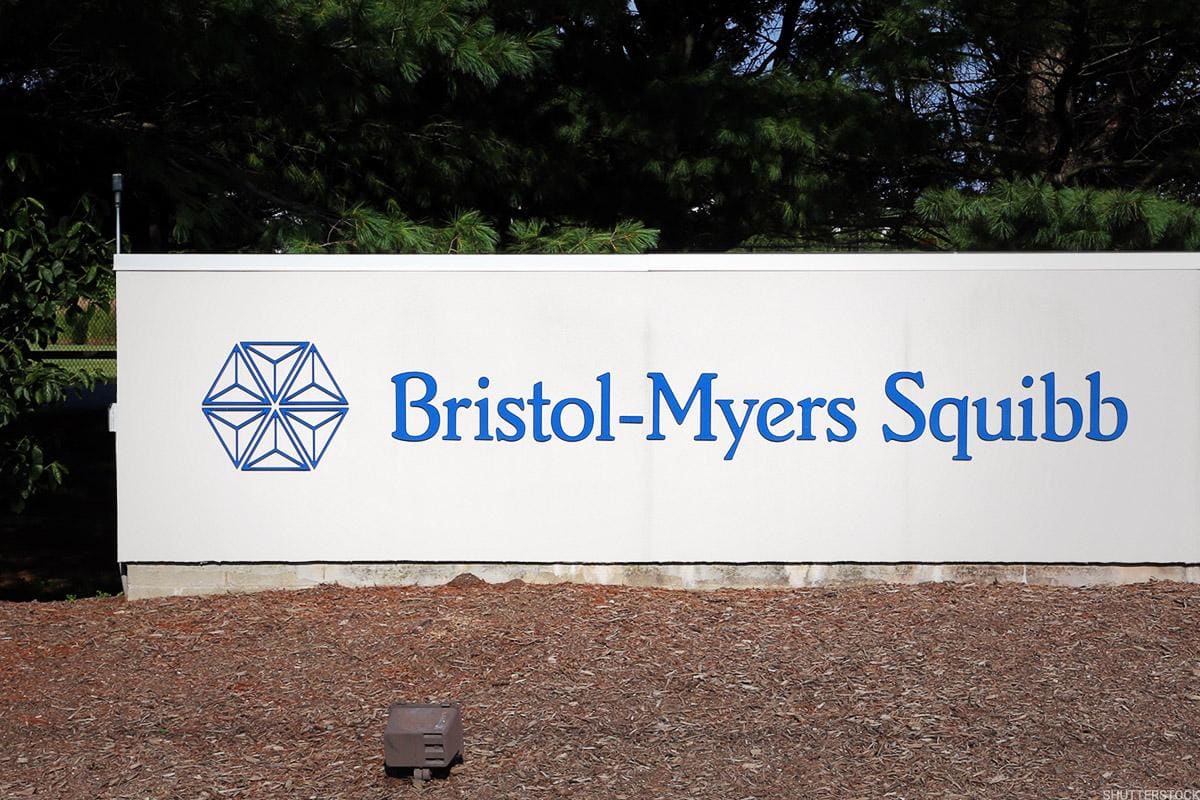
Bristol Myers Squibb (BMY) shares moved higher Wednesday after it posted better than-expected third quarter earnings Wednesday, as solid gains for its blood clot treatment offset ongoing weakness for its off-patent cancer drug Revlimid.
Bristol Myers said non-GAAP earnings for the three months ending in September came in at $1.99 per share, essentially flat to the same period last year but firmly ahead of the Street consensus forecast of $1.83 per share. Group revenues, Bristol Myers said, fell 3.5% to $11.22 billion, again topping analysts' estimates of an $11.14 billion tally.
Bristol Myers blood clot treatment Eliquis saw sales rise 10.4% to $2.66 billion while Opdivo sales rose 7.3% to $2.05 billion. Sales of Revlimid, its blockbuster cancer drug, fell 27.7% in the face of generic competition to $2.42 billion.
Looking into the 2022 financial year, Bristol-Myers repeated its forecast of non-GAAP earnings in the range of $7.65 to $7.95 per share, with worldwide revenues coming in around $46 billion.
“Our strong results reflect growth of our in-line and new product portfolios,” said CEO Giovanni Caforio. “Our teams continue to progress our pipeline and achieve significant regulatory and clinical milestones, including the approval of Sotyktu, a first-in-class, TYK2 inhibitor, to treat moderate to severe plaque psoriasis."
"Our nine new product launches over the last three years including three first-in-class launches this year, combined with progress in our robust and diverse product pipeline, have built a strong foundation for our company," he added. "Combined with our financial strength and talented employees, Bristol Myers Squibb is well positioned for growth and to advance new medicines for patients.”
Bristol Myers shares were marked 1.5% higher in early Wednesday trading following last night's earnings release to change hands at $73.84 each, trimming the stock's six-month decline to around 2.3%.
Last month, Bristol Myers received federal approval for Sotyktu, the first new treatment for adults suffering from moderate-to-severe plaque psoriasis in more than ten years, which is expected to challenge the $2.3 billion market current controlled by Amgen's AMGN Otezla therapy.
Sotyktu is slated to price at around $6,164 for a 30-day treatment, compared to around $4,344 for Otezla.
The approval could at least partly offset disappointing data from a mid-stage trial of its developing stroke treatment that failed to meet the primary goal of the study in late August.
Bristol Myers said the phase 2 trial showed success in that its new drug candidate designed to prevent secondary strokes, an anticoagulant known as milvexian, showed a 30% relative risk reduction, as well as a favorable safety profile, when compared to placebos.
However, in data presented to the the European Society of Cardiology on Sunday, the study's primary endpoint -- which included by a dose response in terms of stroke incident as well as a brain infarction biomarker -- was not met.







